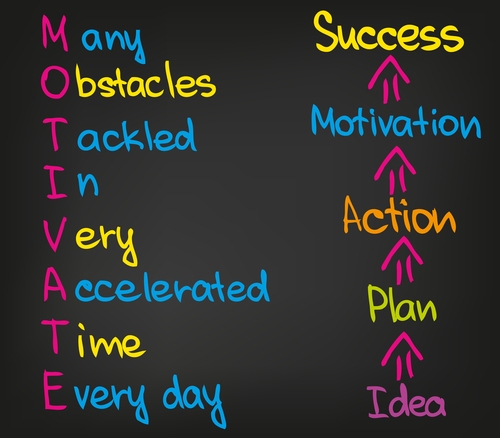
When it comes to motivation with money some of us have more than others.
It’s incredibly EASY to throw down any amount of money and tell yourself it’s only just once.
It’s only $3.00.
It’s not that huge in the big scheme of things.
Getting out of debt and saving money requires not only motivation but discipline. A form of daily discipline that you need lots of.
It means skipping Starbucks when you least feel like it to put that money in the savings account – after all, your future retirement is far more important than a cup of coffee (with a really lousy rewards system) – right? Then again maybe you disagree – but that’s the reason some people can’t move forward as easier as others.
Motivation is a desire to achieve more than you have achieved until this point in your life – your motivation may stem from a variety of reasons – family, friends, past experiences, fears of failure, and potentially more.
Being motivated about your finances is alot similar to the motivation to be healthy – be fit, eat better. They are similar in a sense that neither have visible consequences..
ie. A candy bar NOW may not seem like a bad choice – as you won’t add pounds from “just one” – right?
ie. Spending $3 NOW may not seem like a bad option… obviously you aren’t going to fail today over $3.00 – so go and buy that ice cream you so desperately want.
To see positive results you need to string together a series of positive habits – that goes for your desire to be healthy AND your desire to save money.
So how do you stay positive when it’s a struggle to do so on a daily basis? How do you stay motivated to continue on your plan once your debt is paid?
I think it’s important to do things constantly than to try to do everything at once – small steps repeated daily make it almost easier in a sense than trying to tackle LARGE steps in one try. But there are also some things to keep in mind as you move forward on your mission too.. hopefully these tseps will help you stay the course to allow you to save MORE over time…
#1 – Remember Where you were Before
Make a point of remembering what is motivating you to make better decisions – and try to HOLD on to that motivation – if credit cards are motivating you, then frame that card as a constant reminder of what you are trying to improve from.
Did you cut them up?
If you did, then instead of framing them or throwing them, then throw in a jar to remind you of the positive decisions you are making now.
#2 – Have a Vision of Where you Want to Go
You can’t get to where you want to GO unless you have a vision of where you are going. If that means writing down in a journal or making a vision board, then create that tangible reminder of your goal.
#3 – Small Steps Count
For many I think the concept of saving ANY amount requires giving up LOTS of things, or saving large amounts of money. That couldn’t be more false. Have you seen our 52 Week Savings Challenge? We were documenting our savings every week – that is, until several people complained that it made them feel like they couldn’t save.
I’m not sure what made them feel like that. The challenge truly is easy to do – I don’t think it gets much more simple than that.
Likewise, paying credit card debt may seem impossible – in these cases thinking in smaller terms is the best way to realize that your journey will be made of many small steps. Manageable steps.

Back when I was in my first year of Military Service, I remember opening my retirement fund – I remember clearly the day I started a draft, and made that draft part of my regular weekly contribution. Over the last 17 years, I finished Military Service, and earned my Masters, got married and had a family. Four kids later and one more coming.. that same retirement fund is STILL growing.
Of course, I am contributing more now than I was before, but my salary has increased with time.
17 years ago, would I have envisioned that ONE small action leading up until now? Never – and at the time, I remember my parents telling me that investing in the market was a poor idea – too risky, I would lose it all. But now, in my late 30’s, I can see my parents are still working – have no retirement set aside, and that was MY motivation for making those small steps.
Know what I think? I think that NOT saving in the market is a risky move. Perhaps that’s just me – who knows.
#4 – Set Small Goals
If you can set small goals, to be achieved in simple steps, then those milestones will help you reach the next level in your mission to get better… if your first milestone is to set 1,000 for your Emergency Fund, then that’s GREAT. SET that goal, and celebrate with your spouse when you reach that milestone.
Then work on paying your debts (credit card) smallest to largest – and as you go, make it a milestone effort – once you pay off the smallest, then work up that amount to toss towards the NEXT largest. (We know that mathematically paying the bill with the highest interest may be more favorable, but if you are using that logic you wouldn’t be in debt in the first place – right? That’s the truth.)
#5 – Continue to Reassess your Plans
Don’t just autopilot each month – you will lose sight of the bigger picture. Every month, sit down to re-evaluate your progress.
Make changes as needed. Did you get a raise? Can you appropriate more towards your savings? Then DO that. If you paid off your debt and are now saving more, thus raise the threshold for your salary so you can save more of your monthly pay.
#6 – Give Thanks
It’s easy to get so involved in your finances – increasing your savings, budgeting for your kids college, or even working to pay off debt, that you forget about the things you have right now at this point in time.
It’s easy to lack motivation when you see your friends and family out doing things that you might not possibly be able to afford. Are they going out for dinners frequently? Did someone buy a new car? Did someone land a higher paying job?
Remember where you are … where you came from, where you are headed, and WHO you are doing this for. Give thanks for your family, your opportunity to work and earn money FOR your family and for having the dedication to get better in areas than many may not have the fortitude to do.
All the things in the world are great – eating out, new cars, and trips – but it’s always great to remind yourself of the financial journey you are on. A little sacrifice for a few years will allow you to have far greater power later on – and that power, is priceless.



